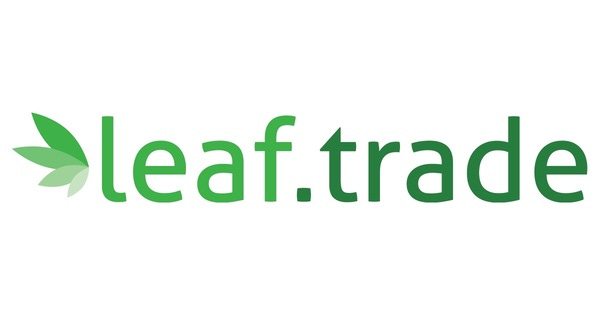There are no natives in the cannabis industry, Fyllo and leaf.trade play March Madness, upcoming events and more…
Have a tip, question, or just want to introduce yourself? Drop Brad a note at brad@grownin.com

We don’t yet know how cannabis will impact Chicago’s corporate landscape. Maybe one day all this will be cannabis. (Nancy Bourque/Pexels)
Five observations from the green frontier
As one of the more than 250,000 U.S. professionals to transition to the cannabis industry in 2019, I’m now finding myself dispensing advice to friends and contacts interested in working in the sector.
This is what I’m learning so far.
There are no industry natives
Virtually everyone working and/or investing in cannabis today brings experience, bias, capabilities and networks from whatever industry they left into their new professional journey. All others are just starting their careers in a field that came into existence (and to some extent was illegal) while they were still in school.
Grown In advisor David Friedman, a serial entrepreneur who started cannabis companies in 2014 and now has more than 20 investments in the industry, explained to me recently that there are no natives in this industry.
“Almost all of us have come from some other mainstream industry and immigrated into this space,” he said.
This is similar to the early days of digital in Illinois and nationwide. The pioneers from Champaign and Silicon Valley who developed companies like Netscape in the Nineties - the graphic web browser that ushered in the commercial Internet - were followed by investors, entrepreneurs, opportunistic professionals, and others excited about the promise of a new industry.
In that era, sometimes called “Web 1.0”, there were no digital natives. While serious-minded people and organizations raised money to fund new businesses that promised to change the world, nobody had a full sense of what they were doing or how the new industry would evolve over time.
A generation later, at least two of that industry’s pioneers are also among the most important players in the Illinois commercial cannabis industry. Governor J.B. Pritzker, who championed the new law, invested in dozens of Internet companies during Web 1.0 via his New World Ventures fund. Another early leader, Wendy Berger, who co-founded early web development firm Neoglyphics (sold for $63 million in 1998) and was employee number 11 at Orbitz, is today among the most accomplished and connected individuals in commercial cannabis in Illinois today.
Illinois has the commercial infrastructure to be an industry leader
Six Illinois-conceived cannabis companies - Green Thumb Industries (GTI), Cresco Labs, Revolution Global, PharmaCann, Grassroots Cannabis and Verano Holdings - are leaders in this fast-growing, multi-billion dollar sector.
GTI and Cresco are both publicly traded on the Canadian Stock Exchange, and like most public cannabis companies took a valuation beating in 2019. Grassroots and Verano were or are poised to be acquired for 9-figure valuations. PharmaCann dodged a bullet last year when its $675 million sale to Los Angeles-based MedMen (now reeling) fell through. Revolution Global, while attracting fewer headlines on the finance page, is the largest grower of medical cannabis in Illinois.
All of these companies are vertically-integrated in that they operate cultivation, processing, and retailing facilities in multiple states. While the Federal Trade Commission historically cracks down on companies that become too powerful while engaging in such practices (see U.S. vs. Paramount Pictures Inc. for an example), the United States government must first recognize the legality of growing, producing and selling cannabis for medical and recreational use before it can regulate these business practices.
While legal ambiguity and market volatility persist, all of these companies are hiring at a breakneck pace. A healthy portion of executives, investors and professionals living through massive growth in a still forming industry will start new companies, brands and organizations to serve the next wave of industry aspirants.
While some observers believe California, due to its climate and commercial head start, will emerge as the epicenter of the industry when and if becomes federally legal, locals point out that weed grows like a weed and can be efficiently produced and packaged from anywhere. Illinois, with its existing consumer packaged goods, branding and financial services infrastructure, can be an industry leader in ways that it may never be in technology and other 21st Century industries.
Big Food execs eye big opportunities
Deerfield-based snack conglomerate Mondelez International is trying to figure out how to infuse CBD in Oreos and Triscuits (which may or may not encourage the consumption of more Oreos and Triscuits), while C-level executives from its parent company Kraft are asking industry newbies like me for consumption analytics to gauge potential market size for its consumer goods.
Constellation Brands, which operates its Corona and Modelo beer imports out of Chicago, pumped $4 billion into Canada-based Canopy Growth. Lagunitas, which operates a major production facility in Pilsen, recently debuted Hi-Hops, “an IPA-inspired sparkling beverage” that lacks alcohol but contains THC.
Overall investments in this space are constrained, for now, due to things like the illegality of transporting cannabis (or at least THC)-infused food across state lines.
Employment policies are changing
Off-hours recreational cannabis consumption is no longer illegal. Companies who don’t want to limit hiring options in these times of historically low unemployment are liberalizing employment policies to recognize new state laws and social norms.
As outplacement and executive coaching expert John Challenger explained to Grown In shortly after cannabis became legal in Illinois:
“Cannabis still carries a higher stigma than alcohol, but as more jurisdictions permit recreational use and as time passes with this new legislation, we’ll likely see even conservative businesses relax their policies to some degree.”
More social equity investments are coming
Illinois was the first state to legalize recreational cannabis through its legislature. One of the results of this process, which will likely be followed by New York and other states, is that incumbent medical cannabis growers and retailers need to invest in social equity programs to most easily expand their operations into what appears to be recreational sales opportunities.
By Illinois Statute, companies (which include independently-owned dispensaries) that were formed to sell medical marijuana have the right to open additional recreational sales operations in exchange for $100,000 in social equity contributions and donations for each new location opened.
This includes incubators run by Cresco and GTI that train social equity applicants to apply for dispensary, infusion, cultivation and transporter licenses. These individuals typically come from communities most negatively impacted by the war on drugs. Revolution recently contributed to the OURS program in association with Growing Greater Englewood.
Jeremy Unruh, PharmaCann’s director of regulatory and public affairs, believes blue states like New York (who many expect to approve recreational sales in 2020) will adopt and perhaps expand upon social equity requirements pioneered in Illinois.
As Unruh shared with Grown In earlier this month, “the same political winds that drove this industry five years ago are not the same political winds driving it today.”

Leaf.trade, a Chicago-based cannabis company that does not “touch the plant”, raised $4.5 million in a round led by Hyde Park Angels.
Fyllo and Leaf.Trade part of March Madness contest
Cinderella stories…
Chicago Inno, which generally covers technology and startups, selected two cannabis-focused companies as 2020 March Madness Finalists.
Alongside local stalwarts including Jellyvision, Cameo and SpotHero are Fyllo and leaf.trade, both software companies focused on cannabis-specific market problems.
The annual, electoral competition asks voters to punch a virtual card to indicate which local company they would wish to invest.
Fyllo raised $18 million in 2019 from hedge fund and private equity investors to fund development of a platform that helps advertisers comply with labyrinthine regulations at the state and municipal level. The company earlier this year acquired Denver-based CannaRegs for $10 million. Leaf.trade raised $4.5 million from Hyde Park Angels and others to develop a wholesale ordering platform for brands and dispensaries.
Last year’s contest, modeled after the bracket structure of the NCAA College Basketball Tournament, attracted 133,000 votes. Companies were selected according to the amount of funding they raised. Full brackets will be published on March 3.

Grown In’s new Substack page. Now you can gorge on weeks of reporting!
Catch up on ten weeks of Grown In archives!
Leave it to a cannabis media company to send out 10 newsletters to thousands of readers and make it impossible to read back issues. Until now…
We (not the proverbial “we”, but rather Grown In co-founder Mike Fourcher and I) are pleased to announce that all Grown In archives, as well as a link to subscribe to our weekly free email newsletter, are available online, using the magic of Substack. Tell all of your friends.
Substack is not where we want to live forever, but for now it’s a great temporary solution allowing you to read and link to past newsletters and for us to seamlessly manage subscription signups, which now number close to 1,000.
Was this email forwarded to you?
Coming Cannabis Events
Here are a few events this upcoming week you should know about. Have an event you wish to share with Grown In readers? Email brad@grownin.com.
February 21
EVENT: Cannabis and Hemp Law and Business in Illinois: The Nuts and Bolts
TIME: 9:00 a.m. to 5:30 p.m.
LOCATION: Chicago Bar Association, Seminar Room, 5th Floor, 321 S. Plymouth Ct. Chicago
ORGANIZER: Pincus Professional Education
PRICE: $425
February 22
EVENT: Equal Opportunity in the Cannabis Industry
TIME: 8:00 a.m. to 2:00 p.m.
LOCATION: Chicago-Kent College of Law at Illinois Institute of Technology, 565 W. Adams St. Chicago
ORGANIZER: Illinois Women in Cannabis
PRICE: $60 - $100
EVENT: Chicago Social Equity Cannabis Dispensary Agent Seminar
TIME: 9:00 a.m.
LOCATION: Blue Lacuna, 2150 S. Canalport Ave, Chicago
ORGANIZER: Chicago Minority Cannabis Group (Meetup)
PRICE: $100
EVENT: Cannabis Consumption Business License Panel
TIME 9:00 a.m. - 1:00 p.m.
LOCATION: 9 W. Washington, 4th Floor, Chicago
ORGANIZER: Cannabis Equity X
PRICE: $35 -$45
EVENT: Creatives, Entrepreneurs, Nonprofits & Cannabis
TIME: 1:00 p.m. to 3:00 p.m.
LOCATION: Blackstone Branch, Chicago Public Library, 4904 South Lake Point Avenue, Chicago
ORGANIZER: The Doobie Room
PRICE: Free

GETCO vet Mike Blum leaves Goldman Sachs to run technology for PharmaCann while Linda Marsicano of Green Thumb Industries nails it during the NBA All Star Weekend. (Images from LinkedIn)
Cannabis Company Tracker: Cresco Labs, PharmaCann, Grassroots Cannabis, Green Thumb Industries
Executive hirings, deal news and words of wisdom from leading Illinois-based cannabis companies.
Cresco Labs Hires former Pfizer, Walgreens, Molson exec as Chief Commercial Officer
Cresco Labs created the position of Chief Commercial Officer while hiring computer packaged goods veteran executive Greg Butler. While at Molson - Coors earlier last year, Butler worked on the HEXO line of cannabis-infused beverages.
On March 6, Cresco will seek neighborhood approval to move its Wrigleyville Sunnyside dispensary from its current location to the site of the old John Barleycorn’s at 3524 N. Clark St.
PharmaCann hires former Goldman and GETCO exec as tech chief
Privately-held PharmaCann just hired an old trading partner to run its technology. Mike Blum, previously of Goldman Sachs and GETCO, joins the company, which will open a number of Chicago locations in the coming years. While at GETCO, Blum worked with PharmaCann investors Dan Tierney and Stephen Schuler.
Grassroots Cannabis inches closer to official sale to Curaleaf
After it was announced in July that Grassroots Cannabis would be acquired for $875 million from Mass.-based Curaleaf, the companies continue to finalize regulatory and related details associated with the transaction. It appears one more hurdle has been cleared. The deal is expected to officially close sometime this Spring.
GTI tells USA Today at NBA All Star Game that cannabis de-stigmafication is FANtastic
It’s a bit of a slam dunk to positively promote the correlation between cannabis and the National Basketball Association while the league’s All Star Game and festivities were hosted in Chicago last week.
GTI’s media relations director Linda Marsicano did it with authority during an interview with the USA Today.
"The stigma of cannabis use is dramatically decreasing,” she said. “So many people know someone whose quality of life has been dramatically improved by cannabis whether it's someone with cancer, PTSD, chronic pain or many other conditions. Certainly visiting a state where cannabis is legal allows people to visit a store and learn more about cannabis and ways it can improve their well-being."
Roll Call: Jeff Cantalupo, Ruth Williams, Ken Davis
Mini profiles of interesting cannabis newsmakers in Illinois.
The founder of consumer-focused venture capital firm Listen is an investor and board director of Miss Grass, a Venice, Calif.-based online weed mag for women. An early investor in Raise who also has early stakes in the Calm app and online training platform CodeVerse, Cantalupo just started an adjunct teaching gig at Kellogg School of Business at Northwestern University.
A 17-year educator and administrator at Oakton Community College, Wilson now directs one of the country’s first college cannabis specialty programs. “It’s been nothing but positive energy,” Wilson explained to Grown In earlier this year. “We have really focused on the medical cannabis industry. It’s not to say that the skills won’t transfer to the adult-use market, but they will. Our focus is to compliment our healthcare program.”
This mobile media serial entrepreneur is among the first people to build a practice around app-based payment processing systems for cannabis dispensaries. “Nobody has addressed the core technology for this industry,” Davis told Grown In last year. “You lift up the hood, 90 percent of the technology is unsecure, not industry standard. Sometimes we would have to find a 40-year old or 50-year-old that knows an old (programming) language (to update technology).”
Help us spread the word of good business reporting! Please click below and tell five friends about Grown In.



